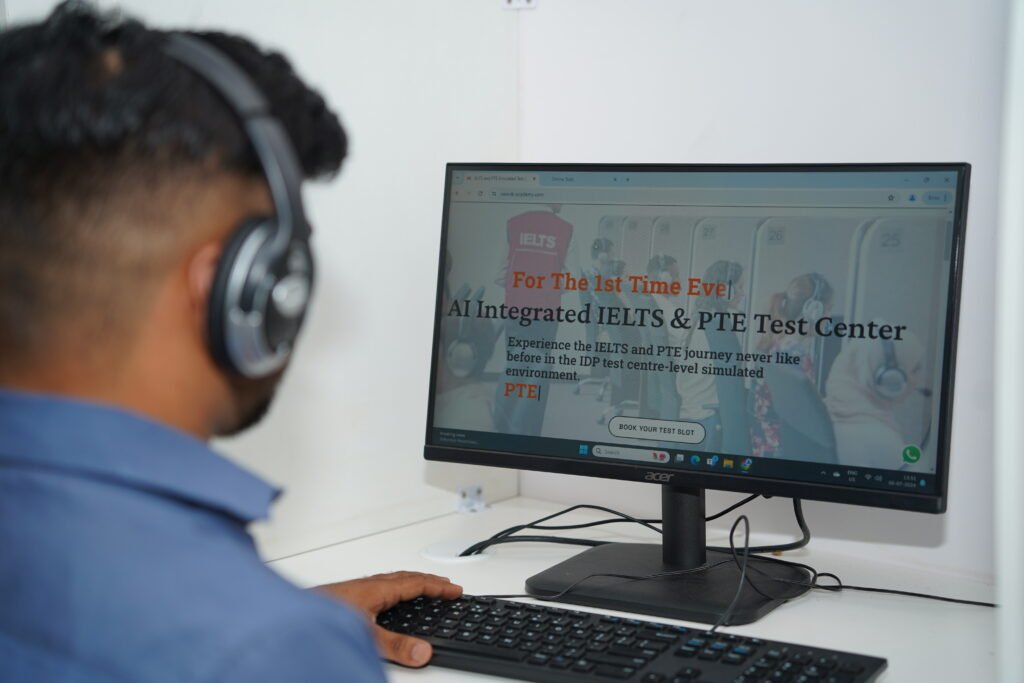Understanding IELTS, PTE, and OET: The Role of Student Loan Financial Services
Understanding IELTS, PTE, and OET: The Role of Student Loan Financial Services In today’s globalized world, proficiency in English is essential for academic and professional success. Three major English language proficiency tests—IELTS, PTE, and OET—serve as gateways for students and professionals aiming to study or work abroad. However, preparing for these exams requires significant investment in terms of time, effort, and money. This is where student loan financial services come into play, providing the necessary support to ensure that candidates can focus on their preparation without financial stress. IELTS, PTE, and OET: An Overview IELTS (International English Language Testing System) The IELTS is one of the most widely recognized English language tests. It assesses four key language skills: listening, reading, writing, and speaking. The test is available in two versions: Academic and General Training, with the former being more suitable for those aiming to pursue higher education and the latter for those seeking work or migration opportunities. PTE (Pearson Test of English) The PTE is a computer-based test that evaluates the same four language skills. It is known for its quick results and flexible test dates. The test uses advanced AI algorithms to provide an unbiased assessment of a candidate’s proficiency. The PTE is increasingly popular among students and professionals due to its convenience and the detailed feedback it offers. OET (Occupational English Test) The OET is specifically designed for healthcare professionals. It assesses the language skills of candidates in a medical context, making it highly relevant for doctors, nurses, and other healthcare practitioners. The OET ensures that professionals can communicate effectively in English-speaking healthcare environments, thus enhancing patient care and safety. The Financial Investment in Test Preparation Preparing for IELTS, PTE, or OET involves several costs: Registration Fees: Each test has a registration fee, which can be substantial, especially when considering potential retakes. Preparation Courses: Enrolling in coaching classes, such as those offered by NeoVIK Academy, can be expensive but are crucial for thorough preparation. Study Materials: Books, online resources, and practice tests are essential for self-study. Travel and Accommodation: For those living in areas without test centers, travel and accommodation costs can add up. The Need for Student Loan Financial Services Given these expenses, many students and professionals require financial assistance to cover the costs associated with test preparation and registration. Student loan financial services can provide the necessary funds, allowing candidates to focus on their studies without the burden of financial stress. Here’s how these services can be beneficial Covering Comprehensive Costs Student loans can cover a wide range of expenses, including registration fees, coaching class fees, study materials, and even travel and accommodation costs. This comprehensive coverage ensures that candidates can access all the resources they need for effective preparation. Flexible Repayment Options Many student loan providers offer flexible repayment options, allowing candidates to repay the loan once they have achieved their desired scores and secured admission or employment. This flexibility makes it easier for students to manage their finances without immediate pressure. Low-Interest Rates Student loans often come with lower interest rates compared to other types of loans. This makes them an affordable option for candidates who need financial assistance to pursue their educational and professional goals. Boosting Confidence and Performance Knowing that their financial needs are taken care of, candidates can focus entirely on their preparation. This can significantly boost their confidence and performance, increasing their chances of success in the exams. How NeoVIK Academy Supports Students At NeoVIK Academy, we understand the financial challenges faced by students preparing for IELTS, PTE, and OET. Our partnership with student loan financial services provides candidates with the necessary funds to cover their preparation costs. Here’s how we support our students: Affordable Coaching Classes: We offer competitive pricing for our comprehensive coaching classes, ensuring that quality education is accessible to all. Scholarships and Discounts: We provide scholarships and discounts to meritorious students and those in need of financial assistance. Flexible Payment Plans: We offer flexible payment plans that allow students to pay for their courses in installments, easing their financial burden. Access to Resources: Our extensive library of study materials and practice tests is available to all students, ensuring they have the resources they need for thorough preparation. Preparing for IELTS, PTE, and OET requires significant financial investment, but student loan financial services can provide the necessary support. At NeoVIK Academy, we are committed to helping our students achieve their dreams by offering affordable coaching, flexible payment options, and access to the best resources. With the right financial support and dedicated preparation, success in these exams is within reach. Conclusion Embark on your journey to success with NeoVIK Academy and take advantage of our comprehensive training and financial support options. Visit NeoVIK Academy https://neovik-academy.com/ to learn more about our programs and how we can help you achieve your overseas dreams.
Understanding IELTS, PTE, and OET: The Role of Student Loan Financial Services Read More »


